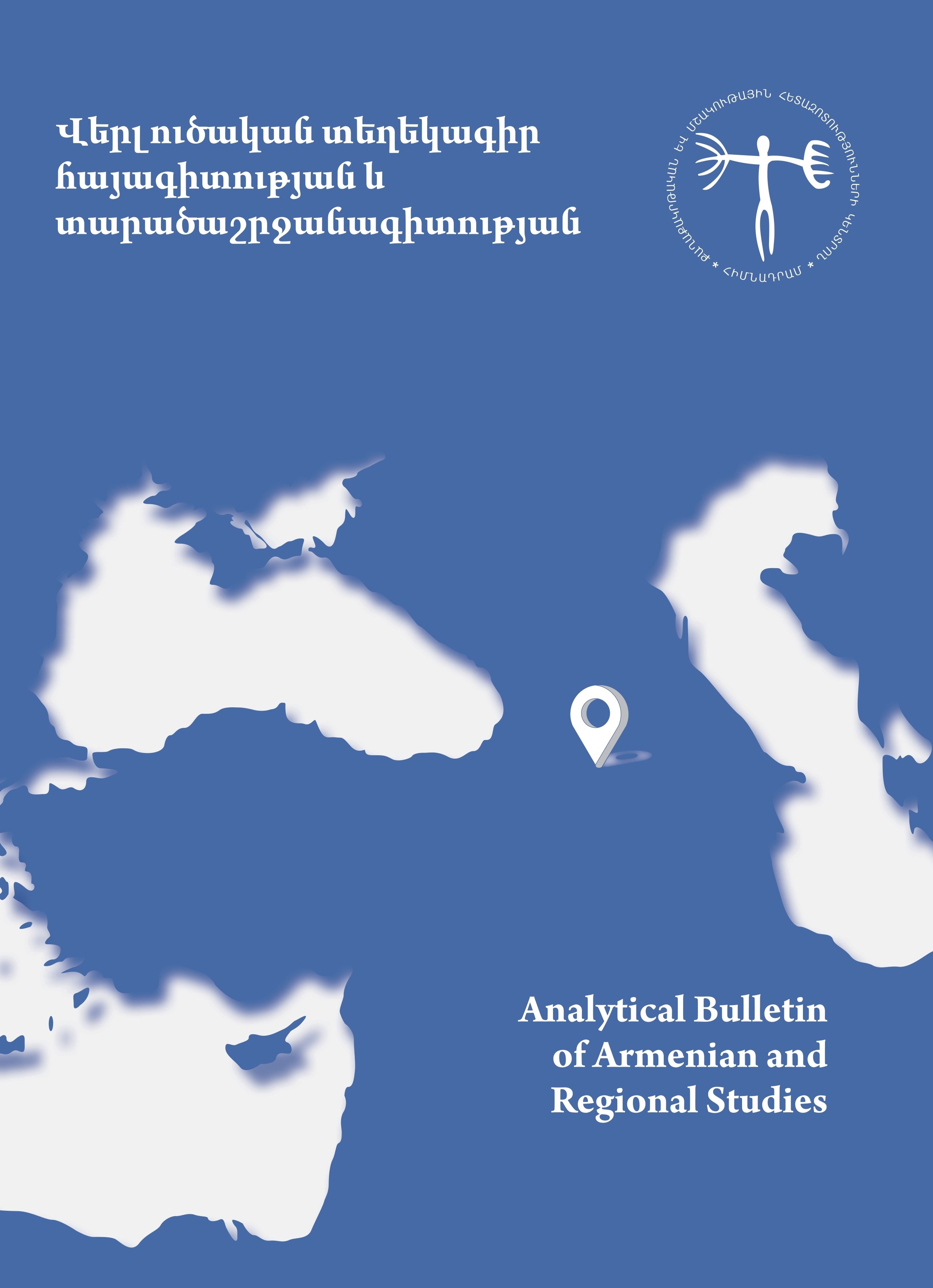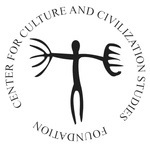Beyond Teaching: Identity Manifestation of Educators Outside the Classroom in Armenian Schools
DOI:
https://doi.org/10.56673/18294502-23.17-50Keywords:
Teacher identity, professional identity, teacher role, post-Soviet Armenian schoolingAbstract
Teacher role and identity are strongly linked to one another. Modern-time Armenian teachers are often given controversial roles and those roles impact teacher identity. This article discusses two main issues: how teacher identity plays a dominant role over other identities and how it is reflected in other outside-school selves and identities. In most social dialogues regardless of the person's role in the given situation, the fragments of teacher identity can be spotted which also conditions the setting of any social interaction.
References
Akkerman, Sanne, and Paulien C. Meijer. “A Dialogical Approach to Conceptualizing Teacher Identity.” Teaching and Teacher Education 27, no. 2 (February 1, 2011): 308–19. https://doi.org/10.1016/j.tate.2010.08.013.
Antonyan, Yulia. “The Armenian Intelligentsia Today: Discourses of Self-Identification and Self-Perception.” Laboratorium: Russian Review of Social Research 4, no. 1 (May 2012): 76–100.
Bakhtin, M. M. “The Dialogic Imagination: Four Essays.” Comparative Literature 34, no. 2 (January 1, 1982): 174. https://doi.org/10.2307/1770763.
Belyavina et al. “A Study on Recruitment, development and salaries of Teachers in Armenia.” International Education Policy studies. 2009.
https://www.slideshare.net/esahakyan/unicef-teachers-finalengmh
Britzman, Deborah. “Cultural Myths in the Making of a Teacher: Biography and Social Structure in Teacher Education.” Harvard Educational Review 56, no. 4 (December 1, 1986): 442–57. https://doi.org/10.17763/haer.56.4.mv28227614l44u66.
Britzman, Deborah P. “Britzman, Deborah P., ‘The Terrible Problem of Knowing Thyself: Toward a Poststructural Account of Teacher Indentity,’ JCT: An Interdisciplinary Journal of Curriculum Studies, 9(Spring, 1992), 23-46.” STARS, n.d.
https://stars.library.ucf.edu/cirs/2236/.
Cacouault, Marlaine. 1987. “Prof, c’est Bien... Pour Une Femme?” Mouvement Social, no. 140 (July 1, 1987): 107. https://doi.org/10.2307/3778679.
Craig, Cheryl J. “‘Butterfly Under a Pin’: An Emergent Teacher Image amid Mandated Curriculum Reform.” The Journal of Educational Research 105, no. 2 (February 1, 2012): 90–101. https://doi.org/10.1080/00220671.2010.519411.
Rosetta Marantz Cohen and Samuel Scheer, The Work of Teachers in America, Routledge eBooks, 2013, https://doi.org/10.4324/9781315045276.
Elbaz, Freema. “Research on Teacher’s Knowledge: The Evolution of a Discourse.” Journal of Curriculum Studies 23, no. 1 (January 1, 1991): 1–19. https://doi.org/10.1080/0022027910230101.
Hargreaves, Andy. “Four Ages of Professionalism and Professional Learning.” Teachers and Teaching: Theory and Practice 6, no. 2 (June 1, 2000): 151–82. https://doi.org/10.1080/713698714.
Hermans, Hubert, and Agnieszka Hermans-Konopka. Dialogical Self Theory: Positioning and Counter-Positioning in a Globalizing Society. Cambridge University Press, 2010. https://doi.org/10.1017/cbo9780511712142.003.
Huisman, Jeroen, Anna Smolentseva, and Isak Froumin. 25 Years of Transformations of Higher Education Systems in Post-Soviet Countries. Palgrave Studies in Global Higher Education, 2018. https://doi.org/10.1007/978-3-319-52980-6.
Patrick M. Jenlink. Teacher Identity and the Struggle for Recognition: Meeting the Challenges of a Diverse Society. R&L Education, 2014. http://ci.nii.ac.jp/ncid/BB19321623
Khachatryan, Serob, Petrosyan, Silva, Terzyan, Gayane. Assessment of teacher professional development and educational content in the context of general education reforms in Armenia. 2013.
https://www.osf.am/wp-content/uploads/2014/03/FinalENGAssessmentPDEC.pdf
Manukyan, Narek. “6 The Reform of the General Education System in Armenia: Education Policy Borrowing in a State of Democratization and Transitional Institutional Capacity.” In Tectum – Ein Verlag in Der Nomos Verlagsgesellschaft eBooks, 77–100, 2019. https://doi.org/10.5771/9783828871977-77.
Meijers, Frans, and Hubert J. M. Hermans. “Dialogical Self Theory in Education: An Introduction.” In Cultural Psychology of Education, 1–17, 2017. https://doi.org/10.1007/978-3-319-62861-5_1.
Steiner‐Khamsi, Gita, and Florian Waldow. Policy Borrowing and Lending in Education. Routledge eBooks, 2012. http://ci.nii.ac.jp/ncid/BB08010654.
UNECSCO. Education Policy Making during Situation of National Emergency, Education Policy Report. Republic of Armenia. 1994.
United Nations Development Programme (2007). “Educational Transformations in Armenia.” Human Development Reports, 2006. https://hdr.undp.org/content/educational-transformations-armenia.
Weber, Sandra J, and Claudia Mitchell. That’s Funny You Don’t Look like a Teacher!: Interrogating Images, Identity, And Popular Culture. Routledge, 2002. http://ci.nii.ac.jp/ncid/BA25790960.
Freire, Paulo. Pedagogy of the Oppressed: 30th Anniversary Edition. Bloomsbury Publishing USA, 2014.
Hooks, Bell. Teaching Critical Thinking: Practical Wisdom. Routledge, 2013.
Տվյալների բազա. (n.d.). ԿՏԱԿ. Retrieved July 3, 2023, from https://reports.emis.am/#/
Հայաստանի Հանրապետության օրենքը «Հանրակրթության մասին» օրենքում փոփոխություններ և լրացումներ կատարելու մասին, ՀՕ-35-Ն, Հայաստանի Հանրապետության Ազգային Ժողով, 09.02.2022:
Downloads
Published
How to Cite
Issue
Section
License
Copyright (c) 2023 Ashkhen Hakobyan

This work is licensed under a Creative Commons Attribution-NonCommercial 4.0 International License.









